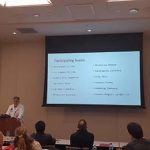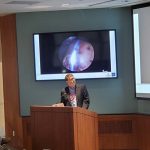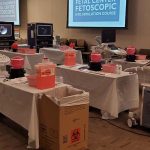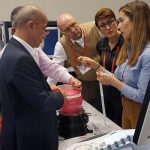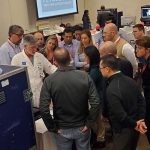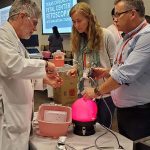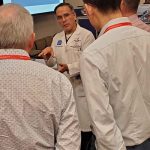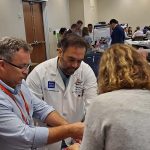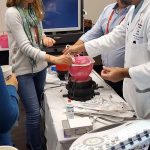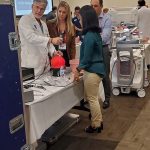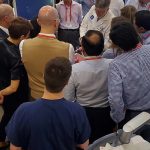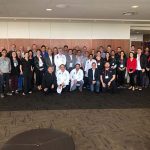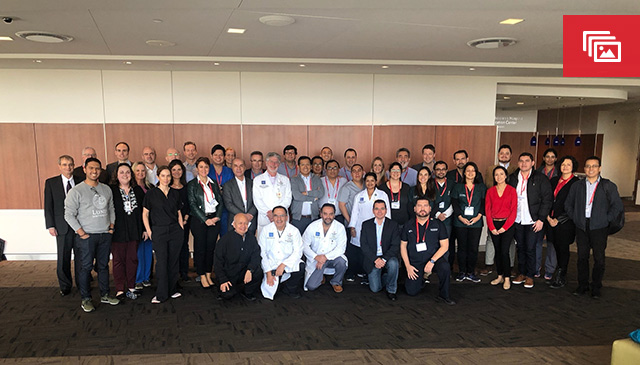
Physicians from across the globe traveled to Texas Children’s Pavilion for Women last week to attend Texas Children’s first Fetal Center Fetoscopic Neural Tube Defect Simulation Course. Teams from Australia, England, Belgium, Turkey, Germany, Colombia, Argentina, Brazil, Mexico, Costa Rica, Peru, and the USA were here to learn how to perform a specific fetal surgery procedure developed at Texas Children’s.
The two-day program included lectures and hands-on practice sessions with various experts in the field, including Texas Children’s Obstetrician and Gynecologist-in-Chief Dr. Michael Belfort and Pediatric Neurosurgeon Dr. William Whitehead. Whitehead and Belfort pioneered two-port fetoscopic neural tube repair surgery in 2014 when they performed the minimally-invasive procedure in–utero on 23-week-old Grayson Canezero.
Since then, Texas Children’s has become one of the only places in the world where people can go to correct neural tube defects, also known as spina bifida defects, fetoscopically. Advances in fetal surgery and the landmark clinical trial, known as the Management of Myelomeningocele Study (MOMS Trial), have proven that a fetal surgical repair leads to decreased rates of hydrocephalus and improved leg function compared to a postnatal repair.
Through their research and outcomes data, Belfort and his team have shown that performing the surgery fetoscopically yields the same outcome for the baby as the open repair, while being significantly less invasive for the mother. Texas Children’s continues to offer open fetal surgery for spina bifida, the standard of care since 2012, for patients who do not qualify for or opt not to undergo a fetoscopic repair.
Conference attendees learned how to select patients for the surgery, counsel and prepare them for the surgery, perform the surgery, manage patients after the surgery and follow-up after the child is delivered. The conference included several hands-on simulations of the procedure and other related surgeries.
“This is a great way to educate and equip surgeons all over the world with the knowledge and ability to perform a procedure that can make a huge difference in the lives of mothers and their unborn babies,” Belfort said. “I am very pleased we were able to provide this opportunity and I am especially grateful to our wonderful Texas Children’s team members who organized and managed the course and to Karl Storz who provided the equipment that made this possible.”


